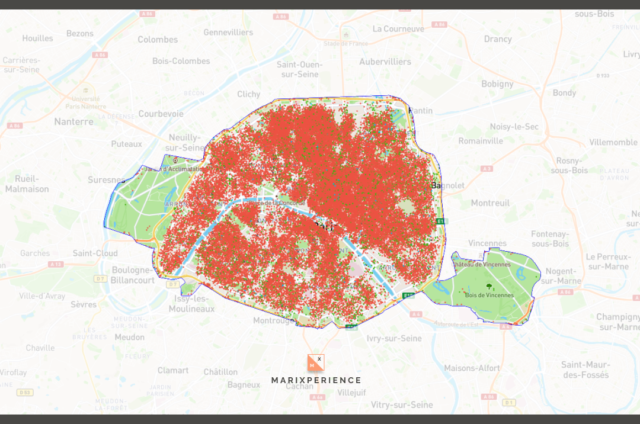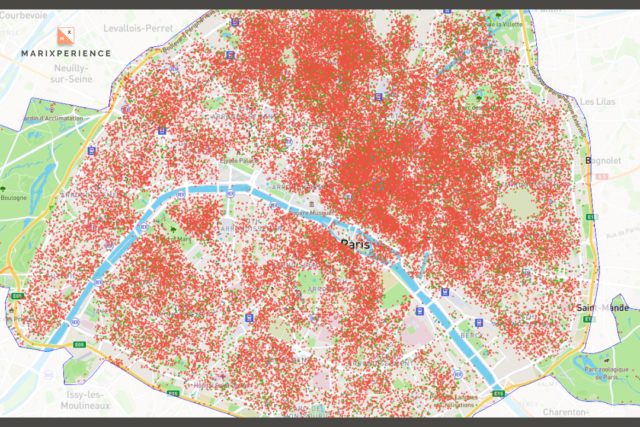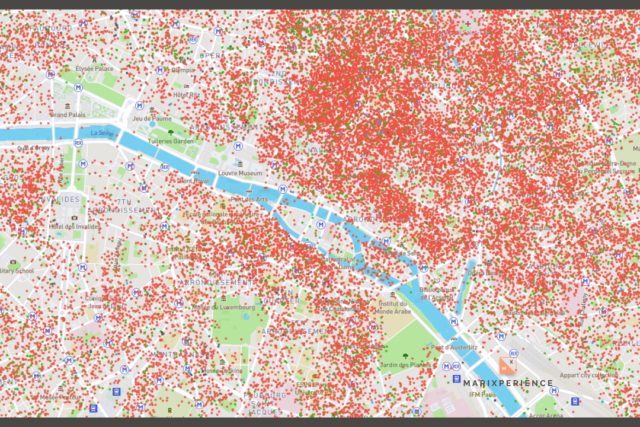The impact of tourism on a city like Paris can be complex and multifaceted. On one hand, tourism brings economic benefits, job opportunities, and cultural exchange. It contributes to the city’s vibrancy and can enhance its global reputation. Visitors are drawn to Paris for its iconic landmarks, art, cuisine, and rich history, making it a hub for cultural tourism.
However, the surge in tourism can also have negative consequences for the local residents and the city itself. The increase in demand for accommodations, fueled by platforms like Airbnb, can lead to rising rental prices and a shortage of affordable housing for residents. This phenomenon often results in the displacement of locals from their neighborhoods, pushing them to the outskirts of the city.

Airbnb accomodation in Paris. GIS. MariXperience Ltd.
Furthermore, the influx of tourists may lead to overcrowding at popular attractions, putting a strain on infrastructure, public services, and the environment. Issues such as noise pollution, increased traffic, and wear and tear on historical sites are common concerns in heavily touristed areas.


Airbnb accomodation in Paris. GIS. MariXperience Ltd.
The question of whether Parisians feel better or worse due to the impact of tourism is subjective and likely varies among individuals. Some may appreciate the economic benefits and cultural exchange, while others may feel the negative consequences more acutely, such as the challenges of finding affordable housing or the disruption caused by crowds.
Cities like Paris often grapple with finding a balance that allows them to reap the benefits of tourism while mitigating its negative impacts on residents and the local environment. This requires thoughtful urban planning, community engagement, and sustainable tourism practices. As with many cities facing similar challenges, finding a harmonious balance between tourism and local well-being is an ongoing and complex process.

